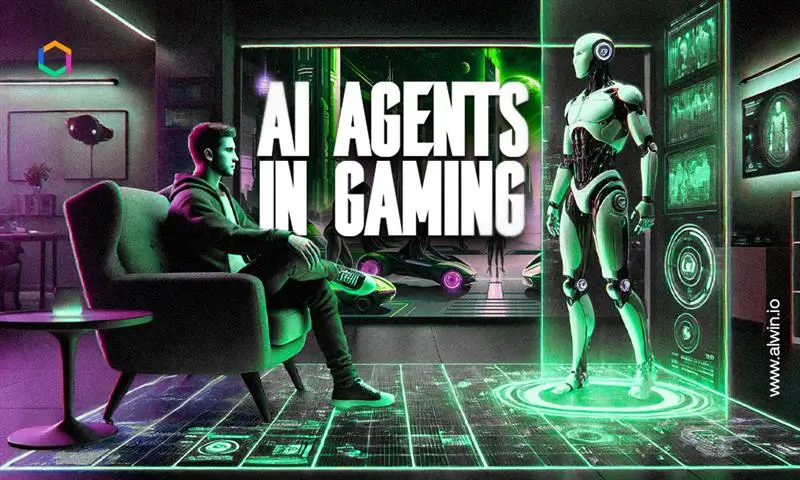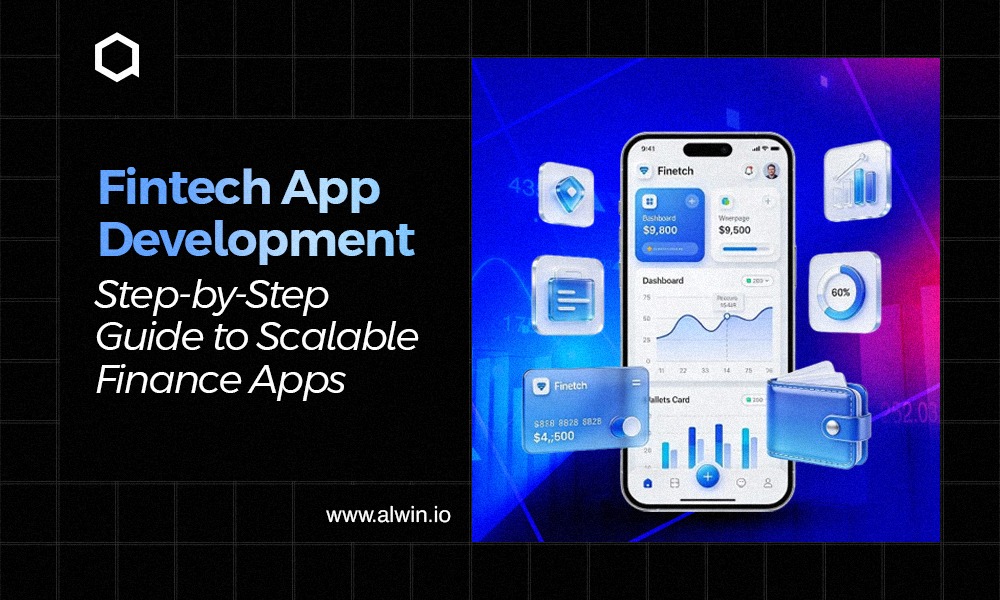Ever played a game where the enemies feel so real, it’s like they’re reading your mind? Or noticed how your in-game allies seem to actually learn and adapt the more you play?
That’s not just slick coding, it’s the power of AI agents in gaming doing their magic behind the scenes.
From smarter enemies and evolving game worlds to characters that can respond uniquely to your every move, AI agents are transforming the way we experience games. They’re not just programmed to follow a script; they can observe, learn, and make decisions just like a human player would (sometimes even better!). This means gameplay that’s not only more immersive but also totally unpredictable in the best way possible.
Whether you’re a developer, a gamer, or just a tech enthusiast curious about the future of entertainment, understanding how AI agents work in gaming opens the door to some pretty mind-blowing possibilities. So, because the era of intelligent gaming is already here, and it's leveling up fast.
A Brief Look at AI’s Entry into the Gaming World
It all started with the most basic opponent movements in classic games like Pong or Pac-Man. AI in gaming used to mean pre-scripted enemy patterns and predictable game mechanics. Fast forward to today, and we’re looking at games that can learn from your playstyle, adjust themselves in real time, and even create worlds on their own.
Artificial Intelligence in gaming isn’t just about smarter enemies anymore. It’s about creating responsive, adaptive, and immersive experiences. From indie developers to major gaming studios, everyone is now embracing AI to enhance gameplay and keep players engaged longer.
What changed? The rise of big data, machine learning, and computational power has opened up possibilities that were once the stuff of science fiction. Gamers today expect intelligent companions, challenging opponents, and dynamic worlds and AI is delivering on all fronts.
What is the Role of AI Agents in Gaming?
AI agents in gaming are like the brainpower behind non-player characters (NPCs), enemy behaviors, in-game assistants, and even entire ecosystems within a game. These agents are powered by artificial intelligence algorithms that allow them to perceive the game environment, make decisions based on various inputs, and perform actions that influence gameplay. Their primary role? To create dynamic, engaging, and intelligent interactions that elevate the gaming experience from something predictable to something incredibly immersive and responsive.
Let’s break it down in a more relatable way. Imagine you're playing a stealth game, sneaking around enemy territory. In older games, the guards would patrol the same path and react the same way, no matter what. But with AI agents in the mix, those guards might learn your patterns. They might set traps, call for reinforcements, or change their patrol routes based on your past behavior. That level of adaptiveness makes the game feel more realistic and challenging, right?
AI agents are also responsible for controlling the behavior of companions or support characters. In team-based or cooperative games, they can provide assistance that feels intuitive, reviving you at the right time, covering your flank, or helping solve puzzles. They aren’t just following a static script, they’re analyzing your actions and reacting intelligently.
Moreover, AI agents are essential in procedural content generation. Think of games that generate unique levels or environments each time you play. AI plays a role in making sure those levels are balanced, engaging, and aligned with the game's difficulty curve.
In strategy games, AI agents control opposing factions that can make tactical decisions like when to attack, retreat, or form alliances. In sports games, they control the opposing team and adapt to your play style. In RPGs, they power characters that can engage in deep conversations, make moral decisions, or change based on how you interact with them.
AI agents act as invisible co-creators of your gaming experience. They turn games from pre-written stories into living, breathing worlds that react, evolve, and surprise you at every turn. They’re not just “bots”; they’re intelligent game changers that are redefining the future of digital play.
Key Features of AI Agents in Games
AI agents are transforming video games from predictable experiences into complex, interactive adventures. These digital brains bring depth, intelligence, and realism to gameplay.
But what exactly makes AI agents so powerful in gaming?
Let’s dive into the key features that define their role and showcase their impact.
Decision-Making Capabilities
At the heart of every AI agent lies its ability to make decisions based on player actions, game conditions, and environment changes. Unlike traditional scripted behaviors, AI agents evaluate multiple variables in real-time and choose the most appropriate action. Whether it’s an enemy deciding to flank you instead of attacking head-on, or a shopkeeper altering prices based on your reputation, AI agents bring dynamic and personalized experiences to life.
Adaptive Learning
One of the most impressive features of modern AI agents is adaptive learning. These agents can learn from player behavior over time. For example, if you consistently use stealth tactics in a shooter, enemies might start setting traps or using thermal vision to counter you. This makes games more challenging, less repetitive, and far more engaging by constantly evolving the gameplay based on your decisions.
Realistic Character Behaviors
AI agents are responsible for making non-player characters (NPCs) behave more like real humans. They react to threats, express emotions, form alliances, or even betray the player based on complex logic. These behaviors are often driven by AI techniques like finite state machines (FSMs), behavior trees, and neural networks. The result? Characters that feel alive, believable, and emotionally responsive.
Environment Awareness
AI agents don’t just act blindly, they have a strong awareness of their environment. They understand terrain, obstacles, and spatial layouts. This allows them to navigate the game world intelligently, avoid hazards, seek cover during combat, or hide from the player when necessary. Pathfinding algorithms like A* (A-star) help agents move efficiently through complex maps, adding a layer of realism to movement and strategy.
Strategic Thinking and Planning
In strategy or simulation games, AI agents demonstrate strategic thinking by planning multiple steps ahead. They analyze resource availability, evaluate opponents' strengths and weaknesses, and make informed decisions like when to attack, defend, or form alliances. These long-term planning skills make AI opponents more formidable and gameplay more satisfying.
Natural Interaction and Dialogue
With advancements in natural language processing (NLP), AI agents can now engage in meaningful conversations with players. Games featuring branching narratives or role-playing elements benefit from AI-driven dialogue systems that adjust based on player choices. Characters can remember past interactions, hold grudges, or change their behavior based on your reputation, adding depth and consequence to every decision.
Procedural Generation Support
AI agents often assist in procedural content generation, helping to design maps, quests, or levels that are unique for each player. They ensure that generated content is not only different each time but also balanced and fun to play. This feature is crucial in roguelike games and sandbox environments where replayability is key.
Multi-Agent Coordination
In many games, especially team-based or large-scale strategy games, AI agents need to work together. They share information, coordinate attacks, and divide tasks efficiently. This level of collaboration mimics real-world teamwork, whether you’re fighting alongside AI squadmates or competing against a coordinated enemy faction.
Emotional Intelligence
Cutting-edge AI agents are being designed with a sense of emotional intelligence. They can detect the emotional tone of a conversation, simulate empathy, or respond to stress and excitement. These agents enhance immersion by making player interactions feel personal and emotionally engaging.
Real-Time Responsiveness
Lastly, AI agents are fast. They process inputs and deliver outputs in real-time, adjusting to your movements, commands, or game-state changes without delay. Whether it's dodging bullets, reacting to a sudden ambush, or adjusting difficulty mid-game, this quick responsiveness keeps the experience fluid and thrilling.
AI agents are more than just lines of code; they’re the creative force behind today’s most immersive and intelligent games. Their key features- decision-making, learning, emotion, and interaction make games feel less like programs and more like alternate realities. As technology advances, AI agents will only get smarter, opening up new dimensions of play where every action matters and every character has a mind of its own.
Benefits of AI Agents in Gaming
AI agents are transforming the gaming world, taking gameplay far beyond simple mechanics and scripted events. These intelligent systems bring life, complexity, and depth to every gaming experience. But what’s really in it for gamers, developers, and the industry as a whole? Let’s explore the biggest benefits of AI agents in gaming and why they’ve become such a game-changer.
Enhanced Realism and Immersion
One of the most noticeable perks of AI agents is the increased realism they bring. They allow non-player characters (NPCs) to act, react, and evolve like real people. Enemies adapt to your strategy, allies assist you intelligently, and even background characters might show lifelike behaviors like chatting, working, or responding to environmental changes. This realism draws players in, making the game world feel more alive and immersive.
Dynamic and Personalized Gameplay
AI agents make every gaming session feel unique. They analyze how you play and tailor the experience to your style. If you prefer stealth, the AI might adjust by tightening patrol routes. If you're aggressive, enemies might become more defensive. This personalization means no two playthroughs are the same, which keeps things fresh and exciting, especially in open-world or sandbox games.
Smarter Enemies and Challenging Opponents
Gone are the days when enemies stood still waiting to be defeated. With AI agents, in-game opponents become strategic, unpredictable, and challenging. They can flank, set traps, call for backup, or retreat when outmatched. This intelligent behavior pushes players to think critically, plan ahead, and improve their skills, making gameplay far more engaging and rewarding.
Flawless Teamwork and Support
In games where you have AI companions, agents ensure that your squad doesn’t feel like dead weight. They can heal you at the right time, provide cover fire, solve puzzles, or alert you to hidden threats. This adds a co-op feel even in solo modes, improving the experience without requiring human teammates.
Efficient Game Design and Development
From a developer’s point of view, AI agents streamline game creation. They can automate testing, generate environments, and even adjust gameplay difficulty in real time. Developers can focus more on creativity and story-building while AI handles the heavy lifting of dynamic interaction and game balancing.
Improved Replayability
AI agents make games more replayable. You might face tougher enemies, explore new paths, or get different dialogue options based on how the AI reshapes the experience. This encourages players to come back, experiment, and explore alternate outcomes.
More Engaging Storytelling
AI-powered characters can remember your choices, hold grudges, form relationships, and evolve over time. This level of emotional intelligence enhances storytelling, making your actions matter more and the narrative feel deeply personal. Think about a character who reacts differently depending on your past decisions; that’s AI-driven narrative immersion at its finest.
Real-Time Adaptability
AI agents can adjust difficulty or behavior on the fly, ensuring a smooth and fun experience for all types of players. If a new player is struggling, AI can scale back challenges. For experts, it can raise the stakes. This ensures that games remain accessible yet thrilling across all skill levels.
Cost and Resource Efficiency
For developers, using AI agents can reduce the cost of manual programming for every potential scenario. Instead of scripting thousands of behaviors, AI can be trained to respond to infinite situations, saving time and resources during development. This is especially beneficial for indie developers or small teams aiming for rich gameplay without a massive budget.
Pushing the Boundaries of Innovation
AI agents are at the frontier of gaming innovation. From procedural generation of worlds to voice-controlled companions and even AI-generated dialogue, these systems open up endless creative possibilities. As technology grows, we’ll likely see fully AI-driven games that change and evolve every time you play them.
The benefits of AI agents in gaming are massive, both in terms of player experience and development potential. They transform static gameplay into a living, breathing journey where choices matter, challenges evolve, and every session feels new.
The Rise of AI in Gaming – Why It’s Time to Pay Attention and Trust WeAlwin
There’s no doubt about it: AI is shaking up the gaming industry in ways we’ve never seen before. From smarter NPCs and dynamic game worlds to adaptive storytelling and realistic player interactions, the evolution of AI in gaming isn’t just a trend; it’s a full-blown revolution. And guess what? We’re still just scratching the surface.
As gaming becomes more immersive and intelligent, the need for robust, future-ready AI solutions becomes non-negotiable. That’s where WeAlwin steps into the spotlight. With leading-edge AI development capabilities, a deep understanding of the gaming ecosystem, and a passionate team of innovators, WeAlwin isn’t just following the trend—they’re leading it.
Whether you’re a game studio aiming to craft the next big title or a visionary looking to explore AI-powered gameplay, WeAlwin provides the tools, tech, and talent to bring your ideas to life. Their experience in building AI agents, integrating machine learning, and designing adaptive game environments means you get more than just a solution.
So, if you're watching the rise of AI in gaming and wondering how to ride the wave, WeAlwin is your ultimate AI development company. They’re not just keeping up with the future of gaming, they’re helping define it.
Ready to level up your gaming project with AI? Let WeAlwin lead the way.



